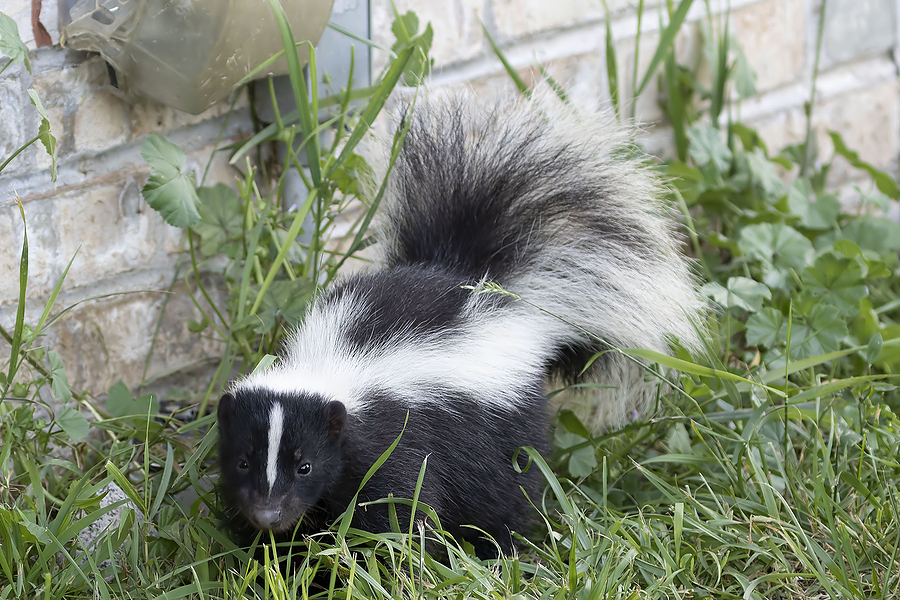We have all smelled a nearby skunk before as residents of Nashville, Tennessee. But when you actually start to see skunks around your property, it is time for some preventative maintenance. Skunks are a nuisance animal, and will cause your house and yard a long list of troubles. From lingering foul odors and lawn damage to potential and serious health and safety hazards, it is best to get rid of skunks before they can cost you.
Continue below to learn the top recommended methods of skunk control, as well as instructions for getting rid of skunks that are in your house or under your porch.

Skunks Want Food and Water
If you live near a large body of water, such as a lake, river, pond, or creek, you can best your bottom dollar that you will have nuisance animal interference at some point in time. Animals like skunks are survivors, so all they want is food, water, and shelter. Generally, areas near large bodies of water and woods are hot spots for such wildlife, and will require some environmental modifications to prevent skunk intrusions or damages. Even if you do not live near large bodies of water, there can still be local skunk populations around your home or business. In either case, it is wise to implement proper preventative maintenance against wildlife tampering and interference.
Common Damages Caused By Skunks
Skunks love to dig up lawns in search of juicy grubs, but they will also pillage your gardens and destroy your flowerbeds. They will also produce a foul, lingering smells left behind by their urine and droppings. If you have a chicken coop, you can rightly assume that skunks will be around to steal some eggs sooner than later. Furthermore, skunks are known carriers of several infectious diseases that can be easily transmitted to your dogs, cats, or worse, children. February through April is prime skunk breeding season, making sightings much more prevalent in Spring.
Here is how you can protect your property from skunk damages and intrusions:
🦨► Remove or Secure All Food and Water Sources
Skunks mostly want food and water. You will need to modify the exterior areas of your property to prevent skunks from gaining access to any food or water sources you might have, including pet food, gardens, and even trash.
🦨► Remove or Secure All Shelters
Remove or secure all possible shelter locations. This includes under your porch, crawl spaces, log piles, playhouses, sheds, barns, and hollowed trees. You can use chicken wire around your gardens, or plant marigolds around your flowerbeds.
🦨► Apply a Non-Toxic Animal Repellent
You can make your own non-toxic animal repellent spray and apply it around the perimeter of your property. Just be sure not to allow children or pets access to treated areas, as most recipes call for harsh ingredients like cayenne and menthol.
🦨► Contact a Wildlife Removal Service
Professional critter control is the best solution for nuisance animal problems because it is the most effective. It combines all of the above-mentioned strategies, plus adds in professional abatement materials and training.
Do you have nuisance skunks roaming around your house at night? Contact Smoky Wildlife Control at 615-610-0962 for safe and affordable skunk removal in Nashville, Tennessee. Request a free estimate or advice, anytime!
You Should Also Read:
The Common Signs of Bats in the House
The Top 4 Methods to Get Rid of Raccoons
FAQS About Animal Damages and Clean Up

